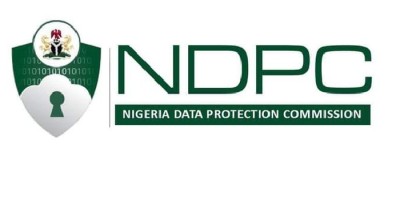COVID-19 and Commercial Transactions: Some Emerging Legal Issues
Posted on Wed 25 Mar 2020
- Download Resource
-
-
Construction & Mining
Operators in the construction sector and their clients have had to face serious interruptions to the performance of their contractual obligations. In most cases, importation of construction materials has been stalled with material adverse effects on building projects and concession contracts. This will either elongate agreed durations for, or completely frustrate the performance of, infrastructure projects earlier awarded. In the same vein, mining agreements such as leases and licenses are expected to suffer serious performance crisis, particularly where expatriate workers from foreign countries are required or where heavy machinery are required to be imported for exploration and exploitation purposes. Will they still be entitled to payments and/or liable for delayed performance?
-
Healthcare
Enterprises engaged in the health sector are significantly affected by the pandemic. With hospitals running out of drugs, test kits and protective masks, and pharmaceutical companies (particularly in Africa) unable to either import drugs or raw materials from affected producing countries around the world; there is pressure on the supply side of the market with many pre-COVID-19 arrangements/orders disrupted. Will health care providers be liable for negligence arising from inability to provide adequate treatment to patients due to shortages caused by COVID-19?
-
African Trade
The ravaging impact of COVID-19 is becoming increasingly felt in Africa only about three (3) months to the take-off date of the African Continental Free Trade Area. The Agreement establishing the AfCFTA was signed on March 21, 2018, in Kigali, Rwanda and it came into force on May 30, 2019. As highlighted in a Special Issue of our Grey Matter Tax Alert in January 2020, the AfCFTA created a single market for the free movement of goods, services and persons within the continent, with the vision that capital, investments and technology will flow across the continent unimpeded. The COVID-19 pandemic is likely going to affect the take-off as well as the objectives of the AfCFTA, should the pandemic persists.
As a consequence of all of the foregoing, the nature/scope of the provisions in underlining contracts for business entities’ obligations have come to the fore of the conversations, as consequential adjustments to the various commercial arrangements/agreements becomes imperative.
-
-
POSSIBLE / RECOMMENDED APPROACHES
-
Force Majeure
Most commercial agreements contain force majeure clauses, included to protect the positions of parties to such agreements, in case certain events (defined in the agreement) occur to prevent performance of contractual obligations. Such circumstances usually include natural disasters, otherwise known as "acts of god", such as earthquakes, tsunamis, plagues or “serious epidemic”. Force majeure events can also include “acts of man” which are reasonably unforeseeable and disruptive in nature, such as an industrial action.
In effect, a force majeure event will relieve a commercial entity, that is unable to perform under a contract due to circumstances outside of its control from obligation. Thus, commercial entities who have failed to perform any of their contractual obligations, as a result of the COVID-19 pandemic, may be able to invoke the force majeure clauses in their commercial agreements; to avoid liability for non-performance. However, where “Coronavirus outbreak” is not contained in the list of defined events in a contract, it is assumed that the current pandemic should qualify as a force majeure event under the umbrella “serious epidemic”, a phrase commonly inserted in commercial agreements.
For contracts containing no force majeure clauses, commercial entities could result to invoking the common law principles of supervening impossibility or frustration, to avoid huge liability for non-performance. However, the availability of this principle would depend on the applicable law to such contracts.
Whether COVID-19 will find application under the general term, “serious epidemic” or will be adjudged a supervening event by operation of law, depends substantially on the construction of the underlining contract, the applicable laws and the unique facts and circumstances of each case. At any rate, commercial entities should consider specifically including a pandemic, such as Coronavirus, in the definition of force majeure events in future contracts.
-
Insurance Policy
Commercial entities having “All-Risks Insurance” and “Special Perils Insurance” as well as “Consequential Loss Insurance” and the like, should review the terms of such policies or seek appropriate professional advice, on whether the current Coronavirus scourge could be accommodated in the risks insured against.
For instance, insured manufacturing companies may benefit under a “Plant-All-Risk Insurance Policy”, as a result of the lockdown in many cities of the world, preventing their operations. In like manner, construction companies may be able to make claims under a “Contractor-All-Risk Insurance Policy”.
However, for “Special Perils Insurance Policies”, it is not clear whether the damage/disruptions caused by the COVID-19 outbreak could amount to special perils. Similarly, it is not clear whether insured commercial entities who have suffered loss of revenue/profit in the wake of the Coronavirus pandemic could claim under a “Consequential Loss Insurance Policy”.
The quantum of claims possible under the various insurance policies will depend on the construction of the insurance contracts. It is necessary that commercial entities negotiate future insurance policies, with a pandemic like the COVID-19 in mind.
-
Business Continuity Plan
The COVID-19 pandemic is changing the world of work. For enterprises without a contingency plan, the economic adverse effect of the pandemic could be extremely devastating. In view of present realities, commercial entities should invest in system automation whereby services can be provided remotely to their clients or customers, in times of natural disasters, widespread plaques or lockdown. For entities relying on delivery of services, the inclusion of provisions in the contract obliging the service provider to have a robust business continuity plan will be important.
Well negotiated commercial and insurance contracts, that will adequately take care of business disruptions and ensure continuity of businesses in the post-crisis period, without losing vital business relationships are crucial. This is imperative for commercial entities, particularly those whose services may not be possibly rendered virtually; such as enterprises in the construction, manufacturing, transport & logistics sectors.
-
CONCLUSION
In conclusion, commercial entities are enjoined, in the light of the global reach of the COVID-19 pandemic and the attendant unprecedented disruptions to businesses, to consider seeking proper legal advice on:
Which existing contracts may be impacted by the ubiquitous restrictions and lockdown on businesses, or where a counterparty may lawfully seek to terminate or suspend a contract;
The employment obligations and/or liability that may crystallize by reason of the current pandemic and how to mitigate against same;
Appropriate steps to mitigating the risks associated with Coronavirus or outbreak of similar epidemic in future contractual relationships/commercial arrangements;
Building an effective Business Continuity Plan within the context of extant applicable laws; and
Whether a force majeure event applies to specific contracts to which they are parties or what reliefs may be available, in the circumstance.
The Grey Matter Concept is an initiative of the law firm, Banwo & Ighodalo
DISCLAIMER: This article is only intended to provide general information on the subject matter and does not by itself create a client/attorney relationship between readers and our Law Firm or serve as legal advice. Specialist legal advice should be sought about the readers’ specific circumstances when they arise.













